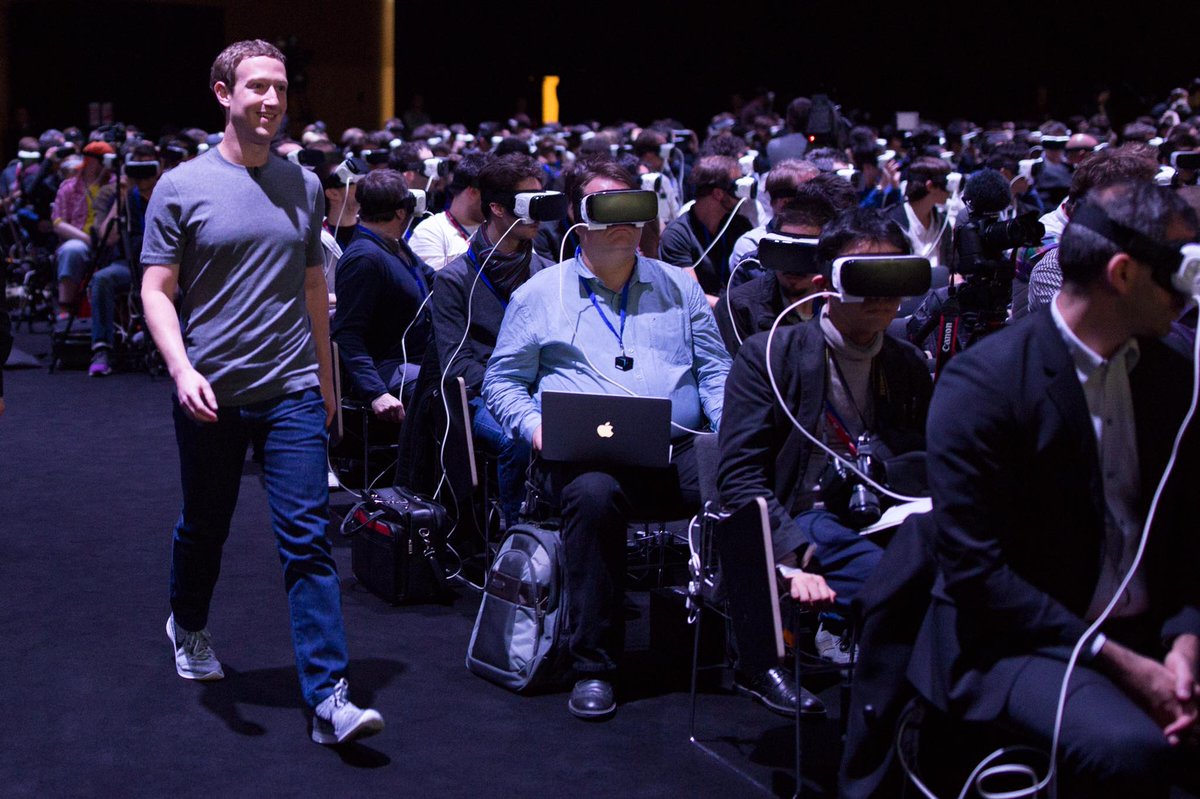More than a billion people work for free for Mark Zuckerberg. The log in to Facebook–although they actually never really log out–and get to work creating content. Sure, they receive some utility and sense of belonging in return for their efforts and data and willingness to be social experiments, but they’re essentially serfs in a virtual world where they have little voice in how their information is repurposed. Everything in this virtual society may be virtual, but it seems a new kind of nation-state by most measurements.
It’s clear from his investments and comments that Zuckerberg wants VR to be a key part of this new parallel universe. A recent photo of the Facebook founder striding to the stage at the Mobile World Congress in Spain, scores of journalists in VR headsets unaware of his entrance, has been widely circulated. I bet a lot of people even took time to post it on Facebook. How nice of them to volunteer their services! In the Washington Post, Caitlin Dewey offers a sharp analysis of the off-putting picture. An excerpt:
Zuckerberg has said that, in his vision for the future, these virtual experiences will be fundamentally social. But the photo suggests something quite different: Hundreds of people share a physical space, but no perception, no experience, no phenomenological anchor. The communality of a conference (literally from conferre, “to bring together”) is thrown over for a series of hyper-individualized bubbles. And you’re reminded, from Zuckerberg’s awkward semi-smile, that the man who owns the bubbles also owns what’s in them. That controlling virtual reality, in other words, is only a step from controlling reality itself.
Then again, Zuckerberg arguably does that already.•
Tags: Caitlin Dewey, Mark Zuckerberg

